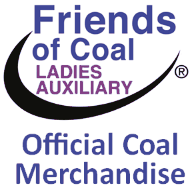
 











|
Signature Sponsor


October 6, 2024 - Coal has played a significant role in the United Kingdom – and British identity – since the Industrial Revolution. Coal first generated electricity in the country in the 1880s. It was the country’s largest bulk export until 1939. Even the word “smog” was coined in London for the hazy skyline coal power created. But now, the U.K. is the world’s first major economy to quit coal power, beating a climate-focused deadline the government set back in 2015.
A CSX train passes the station platform at Charleston. Tammy Sandhu is the British consul general for the northwest United States. Wyoming Public Radio’s Kamila Kudelska was interested to have her compare how the UK is navigating its energy transition with Wyoming, the U.S.’s top coal producer. Sandhu started by explaining what’s taking coal’s place. Editor’s Note: This interview was lightly edited for brevity and clarity. Tammy Sandhu: Up until 12 years ago, so 2012, coal was still producing 40 percent of our electricity. So what we are moving towards heavily in the U.K. is an energy mix: energy that is powered by clean energy, by homegrown clean energy. Our solar and wind generated electricity is coming from the U.K. itself. That's supported by high quality green jobs. Kamila Kudelska: So the phase out plan was made about a decade ago. Logistically, that's not a lot of time. You guys did it, but how? And how could that possibly be a model for other countries? TS: Actually the critical piece that allowed us to do this so quickly was to make the economic arguments, and make it economically inviolable for coal and economically viable for renewables to take off. To meet all of that demand for electricity, we had to access the natural gas that we had in the North Sea. We had to develop our wind power. We had to develop our nuclear power. But the other bit of this, and I think it really speaks to the kind of environmental quality and arguments, is that we had to price the negative externalities from coal. By that, I mean we had to put a price on air pollution and on carbon production. Science tells us that coal produces more carbon than any other energy source. So as far as we in the U.K. are concerned, we had to phase out coal first and we had to phase it out fastest. We mandated that coal plants needed to capture and store that carbon, but we also set a carbon tax. That made the price of carbon more expensive and now economically inviolable. By incentivizing the renewable sector, that pushed down the price of renewables. KK: Let's now turn to potential parallels to Wyoming. We reached out to folks who are following Wyoming's energy transition closely. I'm going to start off by playing a question for you here from Rob Godby. He's an economics professor at the University of Wyoming. Rob Godby: Based on current policy and market trends, the United States expects to phase out coal and electricity generation in the next 20 years. In Wyoming, this is a major challenge since we produce over 40 percent of the country's coal. The UK will have phased out all coal and electricity generation by this October. I wondered what advice you could give Wyoming policymakers as they plan for the future challenges and opportunities this change represents based on your country's experience. TS: There's no doubt that Wyoming has a really long history with coal power, just as we have had in the U.K. It has a really significant economic impact on the state. I was really lucky to be able to visit Wyoming this summer and to meet with Gov. Gordon. I think what was really interesting about that is the governor's approach to this, and to a large extent, our approach, is what [Gordon] terms an “all of the above” approach to energy. Wyoming is already heading in the right direction. You have a natrium reactor on the site of a retiring coal facility. The big wind energy project at Chokecherry and Sierra Madre will be the largest wind farm once it completes. So, I think making [and] continuing investments into those renewable energies, investments into transition and into the grid infrastructure – because that's what allows renewable energy to come online, but also thinking about the fact that as you do this, that will attract other economies to the state of Wyoming. As you put more renewable power online, data centers, for example, that are moving into Wyoming all the time, will find Wyoming a more attractive place to invest. So it will be a virtuous circle. You just have to sort of reach that tipping point. But I think the need for cheap, clean energy in Wyoming will only grow. KK: We have one more question from Matt Burgess, he's an economics professor at the University of Wyoming. Matt Burgess: Many communities, including here in Wyoming, are dependent on coal for their jobs. How is your government ensuring that such communities aren't being left behind as you transition off of coal in the U.K.? TS: A really important question. I think there's lots to learn from what the U.K. got wrong with coal. But I think what we've learned from that is that you have to bring in your communities. You have to think about the transition of skills and of jobs. I think one of the benefits of renewables is that lots of those jobs are transferable. The skills are transferable. We've had some successful transition stories where decommissioned coal plants are now supporting large battery units, for example. Those jobs have been able to be transferred. So it's not simply that a power plant shuts, it's that something else is created in its place and that the people that are most impacted are part of that decision making process, but also then are offered opportunities. I think it's about making sure that the benefits of any transition, so transitioning from a coal-powered economy to a renewable-powered economy, doesn't leave anyone behind. KK: I think this is probably very similar to the U.K. Many coal miners come from generations of miners and there's a sense of pride of being a coal miner. Do you think there's a grieving process for these kinds of families or even entire towns, or do you think there will be cultural traditions, stories, skills that might be lost with ending this industry? And how do you deal with that? TS: Certainly when we saw mine closures in the U.K. in the 1980s, and some of your listeners will be aware of the major strikes that we saw in the ‘80s. Those communities became really impoverished. I think that sense of community is really important. I think that's why it comes back to the just transition, but also making sure you preserve that deep history. Part of the coverage that you see in the U.K. is all about the history of coal. Talking to the people that are integral to that industry, looking at those cities and how we can kind of bring them up, how we can invest in those areas. I think it's extremely important. |
 








|
.jpg)